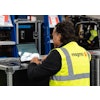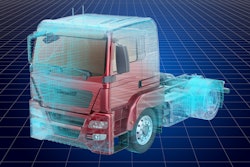
The American Transportation Research Institute (ATRI) has released new research that identifies both the positive and negative impacts associated with numerous government policies, programs and regulations that target autonomous truck development and testing. The study proposes a framework by which autonomous truck standards could be developed.
More specifically, the report highlights dozens of local, state and federal activities that guide and regulate autonomous truck activities. While most attempt to create a framework for the safe testing of autonomous trucks, the myriad state and local activities ultimately impede the creation of a seamless and standardized autonomous truck network. Even those government rules that support the development are often too prescriptive to generate meaningful outcomes.
Read Next: Trump administration releases autonomous vehicles guidelines
For example, multiple vendors highlight Level 4 testing, even though regulations require constant control of the vehicles by both drivers and onboard engineers, making it difficult for motor carrier executives to accurately assess the real value of ATs.
“The pace of technology development in the autonomous truck sphere is moving at lightning speed,” says Jeff Reed, Skyline Transportation President and chair of the ATA Automated Truck Subcommittee. “Our industry needs states to collaborate on seamless policies and regulations, and we need more proactive federal guidance on AT development. Government activities at all levels must be dynamic enough to address the constantly evolving technology landscape.”

















